Cybersecurity, Community and Change: How to Meet the Coming Challenge
- Haroon Mukhtiar
- March 20, 2022
“Any time you see an epic collapse in any system, you need to go bigger to understand the problem”

Leaders and futurists have predicted that we may see the first human on Mars in the next 5-10 years, with colonization to happen soon thereafter. This is not a Star Trek futuristic visioneering exercise. We sit at the dawn of interplanetary travel, and it is critical that we as an industry understand the implications of the biggest big bang disruption in history of our planet.
Like the days of steel, the infrastructure that girds our digital critical infrastructure is fragile and it’s breaking. One needs look no further than the continuous reporting of supply chain breaches and ransomware demands to understand the state of security. When a security breach prevents a large swath of the United States from getting gasoline, we have a problem. And that’s minor in comparison to what could happen.
ISACA recently released its State of Cybersecurity 2021 Part 2: Threat Landscape, Security Operations and Cybersecurity Maturity report. A big conclusion in the report is that “business as usual is not working.” The report states: “Change is ever present for cybersecurity professionals who partner daily with business leaders to meet organizational goals amid growing regulatory requirements and a threatened landscape. Much has already changed since ISACA collected this data at the end of 2020. High-profile cyber-attacks, including those affecting SolarWinds, Microsoft and Colonial Pipeline, thrust cybersecurity to the forefront for government and business leaders, prompting new regulatory changes. Undoubtedly, there will be more.”
“One of our issues is that proper security is inordinately resource-intensive”
- Automation, in tandem with the COVID-19 recession, created a ‘double-disruption’ scenario for workers, with technology adoption accelerating in some areas.
- By 2025, the time spent on current tasks at work by humans and machines will be equal.
- 85 million jobs may be displaced by a shift in the division of labor between humans and machines, while 97 million new roles could emerge.
- Most people (77%) are ready to learn new skills or completely retrain, and 40% of workers have improved their digital skills during the pandemic.
- Long haul trucking will be transformed as autonomous vehicles will be capable of taking all but the last mile of their trek.
“We are looking at millions of jobs opening up in security worldwide and no real plan for how to fill them”
One In Tech is an organization that seeks to build a healthy digital world that is safe, secure and accessible for all. To combat barriers commonly faced by underrepresented groups, they built a suite of programs focused on children, women, people of color and those underserved socioeconomically and due to bias. Their objective is to build equity and diversity in the digital space. One In Tech provides three key programs designed to address global needs and provide programs with measurable impact:
The We Lead Tech program looks to amend the racial and cultural diversity imbalance within tech professions. The lack of diversity is incompatible with the values of the tech industry — innovation, creativity and diversity of thought. Hiring individuals who do not look, talk or think like their employers enables organizations to avoid costly pitfalls of conformity and results in more innovative thinking. ISACA collaborated with City Colleges of Chicago in the creation of this program.


